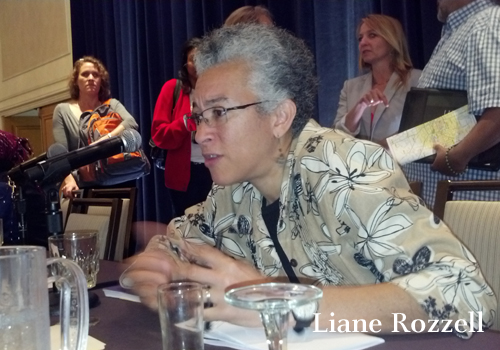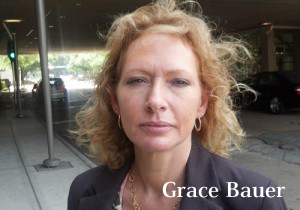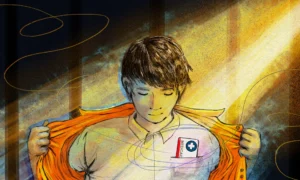Jeannette Bocanegra, a community organizer from New York City, told a gathering of juvenile justice system practitioners and advocates in Houston last week that as a mom with a child who was incarcerated, “This system made me feel like I was a dysfunctional parent, a bad parent … without realizing I raised six other children who never went into the system.”
 Now she and other members of Justice for Families, an advocacy group, are out to prove that, in her words, “We are not dysfunctional … the system is dysfunctional.”
Now she and other members of Justice for Families, an advocacy group, are out to prove that, in her words, “We are not dysfunctional … the system is dysfunctional.”
Liane Rozzell, another parent on the panel, said afterwards, “We don’t have 24-hour remote control over our children.”
During the panel discussion, Rozzell said when her son was first put into detention she thought it might be a good thing, it would teach him a lesson. But she did not realize how negatively he would be affected by the experience.
She also recalled being in a meeting where a teacher from a correctional institution off handedly mentioned sending kids to “an inherently violent place like a juvenile correctional center.”
After hearing that phrase, Rozzell said, “I was just stunned that we can just casually talk about sending our children to an inherently violent place.”
In June, Justice for Families will be releasing an in-depth report, underwritten by the Annie E. Casey Foundation. The report includes results of a survey of 1,000 family members who have had children incarcerated and examines how families of the incarcerated are portrayed by the media.
 Justice for Families co-director Grace Bauer says family involvement and networking is necessary because, “No one knows what it is like to struggle with a child in the system better than another parent.”
Justice for Families co-director Grace Bauer says family involvement and networking is necessary because, “No one knows what it is like to struggle with a child in the system better than another parent.”
However, according to Bauer, early findings from the report reveal, “Families are not consulted. Seventy-nine percent of our families reported that they were never asked by a probation officer about what should happen to their loved one. Eighty-six percent reported not being asked by a judge about what should happen to their loved ones.
“In the juvenile justice system,” Bauer said, “families are often ignored and blamed for their children’s involvement in the system rather than given the support and information necessary to make the best decisions for their children.”
Logistics problems and humiliation are also part of having a family member incarcerated. Grace Warren, a mother from Chicago, told of the five and a half hour one-way drive to see her imprisoned adult son, always with the threat of the visit being denied because of perhaps being just 15 minutes late or by not dressing appropriately – indeed she always brings a second set of clothes. But for her the worse part is the physical search and sometimes having to lift her clothes to show her underwear. She says, “You already searched me, I went through a metal detector and now I have to raise my clothes up. I just feel violated when it gets to that point.”
Afterwards, Louis Castillo, director of detentions in El Paso, Texas, said he wished the panel composed of family advocates would have been a little more balanced. He said rules like set visitation times are a consequence of needing security, adding, “there will be some inconvenience to maintain that security.”
Ernest Johnson, a parent from New Orleans, told the audience, many of whom were judges, prosecutors and probation managers, that families of the incarcerated, outside of the system context, cannot be distinguished from the society as a whole.
He told the gathering, “We were here with you all for the last two days and we had the opportunity to sit next to some of you all and up until this morning you did not know whether or not if
we were a judge or district attorney.”































